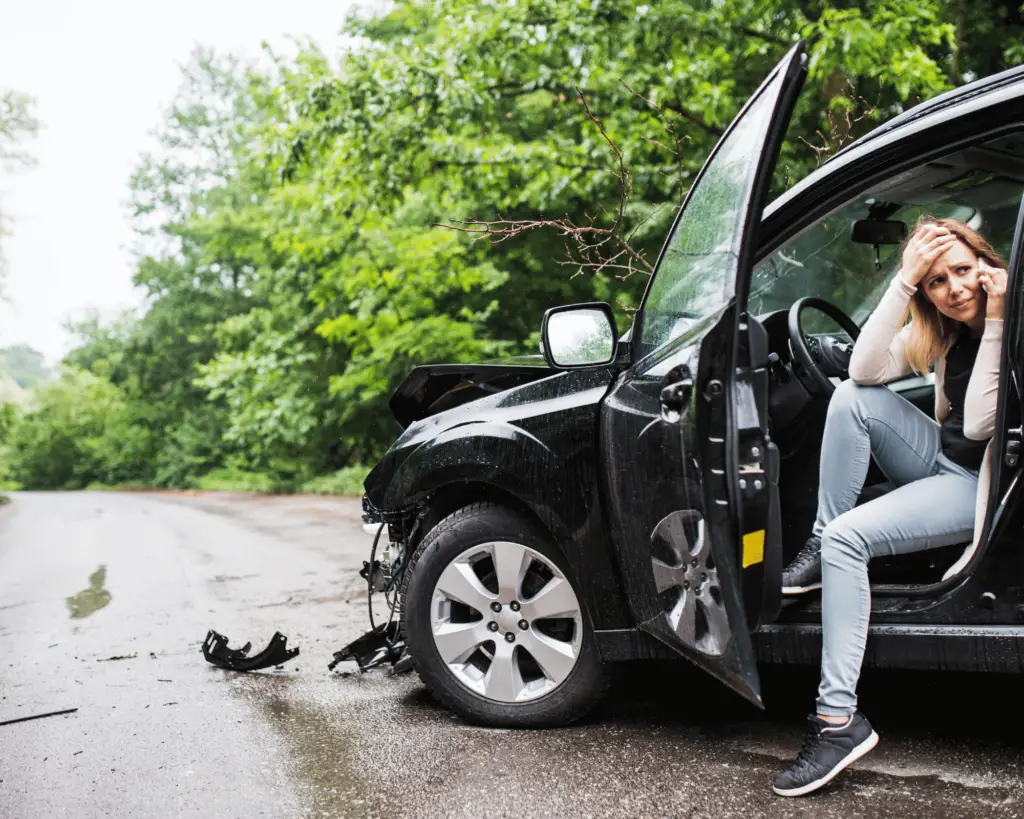Can a Car Accident Affect Your Vision?
Car accidents can result in various physical injuries and medical complications, but one often overlooked aspect is the potential impact on vision. Whether due to direct trauma to the eyes or secondary factors such as head injuries, car accidents can indeed affect your vision. In this blog post, we’ll delve into the ways car accidents can influence vision and what steps you can take to safeguard your eye health.

Trauma to the Eyes
One of the most direct ways a car accident can affect vision is through trauma to the eyes themselves. The force of impact from a collision can cause injuries such as corneal abrasions, retinal detachments, or damage to the optic nerve. Even minor injuries can lead to temporary or permanent vision impairment if not promptly addressed by a medical professional.
Head and Brain Injuries
In addition to direct trauma to the eyes, car accidents can also cause head and brain injuries that indirectly affect vision. Concussions, traumatic brain injuries (TBIs), and other head trauma can result in visual disturbances such as double vision, blurry vision, or sensitivity to light. These symptoms may resolve over time with proper treatment, but they can significantly impact your ability to drive and perform daily tasks.
Whiplash and Neck Injuries
Whiplash, a common injury in car accidents, occurs when the head is forcefully jerked backward and then forward, stretching the neck muscles and ligaments. While whiplash primarily affects the neck, it can also lead to symptoms such as headaches, dizziness, and visual disturbances. Neck injuries can compress nerves or blood vessels that supply the eyes, resulting in symptoms like blurred vision or difficulty focusing.
Post-Traumatic Stress Disorder (PTSD)
Car accidents can have psychological effects as well, including PTSD, anxiety, and depression. These mental health conditions can indirectly impact vision through increased stress levels, disrupted sleep patterns, and changes in hormone levels. Chronic stress and anxiety can contribute to conditions like dry eye syndrome, which can cause discomfort and blurred vision.
Impaired Driving and Vision Screening
If you’ve been involved in a car accident that affected your vision, it’s essential to prioritize your safety and the safety of others on the road. Before resuming driving, undergo a comprehensive vision screening by an eye care professional to assess any changes in visual acuity, peripheral vision, or depth perception. Depending on the severity of your injuries, you may need to wait until your vision has stabilized before getting behind the wheel again.
Seeking Medical Attention
If you experience any vision changes or eye discomfort following a car accident, seek medical attention promptly. Even minor symptoms could indicate underlying injuries that require treatment to prevent long-term complications. An ophthalmologist or optometrist can perform a thorough examination to identify any injuries or abnormalities and recommend appropriate treatment options.
Preventive Measures
While accidents can happen unexpectedly, there are preventive measures you can take to reduce the risk of vision-related injuries in car accidents. Always wear seat belts and ensure that all passengers are properly restrained, as seat belts help prevent ejection from the vehicle and reduce the severity of injuries in collisions. Additionally, use child safety seats or booster seats for young children to protect them from injury in the event of an accident.
If you experience any changes in vision or eye discomfort following a car accident, seek medical attention promptly to prevent long-term complications. Remember to prioritize safety on the road and take preventive measures to reduce the risk of vision-related injuries in car accidents. If you find yourself injured in a car accident due to someone else’s negligence, please seek legal guidance from an experienced McAllen personal injury lawyer.







